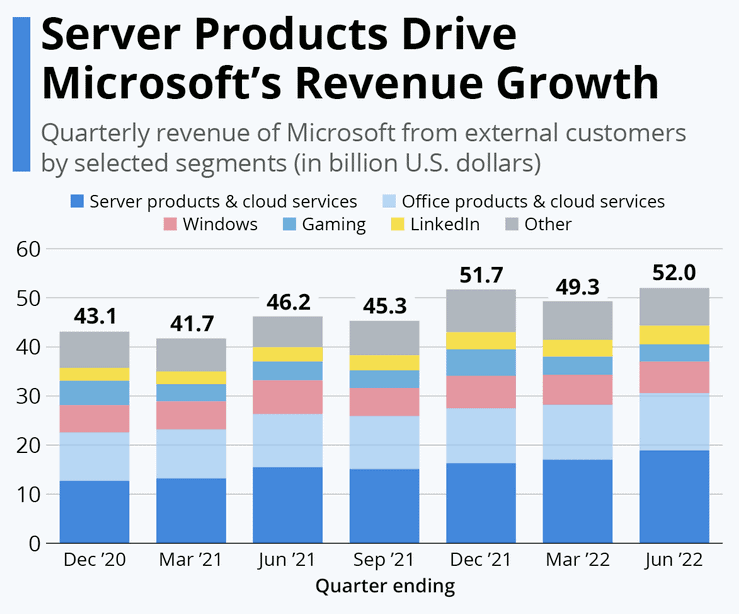

Microsoft Unified Support Grinds to a Halt.
Microsoft Unified Support Grinds to a Halt
Microsoft Unified Support has ground to a halt in Q4 2022 leaving many enterprises scrambling for alternatives.
For the first time, high severity (level A), mission-critical tickets are now taking weeks, not hours, to fix at Microsoft.
Audience: Microsoft Vendor Management | IT Sourcing & Procurement | CIO

Microsoft Support Gridlock
Microsoft Unified Support resolution times have gone through the roof in Q4 2022 leaving enterprises scrambling for alternatives.
For the first time, high severity (level A), mission-critical tickets are now taking weeks, not hours, to fix at Microsoft.
Unfortunately for some enterprises that have combined their Unified Support (formerly Premier) agreement with their Microsoft Enterprise Agreement (EA), they are now locked into a less-than-ideal support experience for 3 years and may be forced to either staff up their internal helpdesk team or use a third-party provider in parallel with Microsoft.
Microsoft Unified Failing to Scale
MS Unified Time to Resolution (TTR) for lower-level severities (B and C) has never satisfied most of its customers but they also didn’t impact uptime or revenue – they were annoyances.
Low severity issues taking 60 days or longer to resolve were tolerated because no one will lose their job due to a languishing severity B or C support ticket.
However, the situation is rapidly changing for a number of Unified enterprise customers. Q4 2022 finds many Microsoft support subscribers in a traffic jam like no other. There were early warning signs of rush hour traffic building but no one anticipated a complete gridlock.
That is exactly what is happening to some Microsoft Unified Enterprise subscribers right now. They were sold an “as needed” organization-wide support model where they could open tickets as needed. Some cut back on their internal helpdesk headcount to lean into the model. Others waited to see before impacting internal IT.
Low severity TTR suffered from the onset but were tolerated and managed. Now, critical tickets are suffering as well, and enterprise IT teams are feeling the heat as they expand their reliance on Microsoft cloud services. In many cases, 100% of the tickets being sent to Microsoft Unified are now experiencing drastically longer TTR.
High Severity Tickets Languish for First Time
For the first time, enterprises are seeing high severity (level A) Unified Support tickets languish. These mission-critical issues were typically resolved in hours in the past.
Now, many are going into weeks and word on the street from Microsoft Customer Success Account Mangers (CSAMs) is there simply aren’t enough qualified engineers at Microsoft (including overseas outsourcing) to handle the rapidly expanding Unified Support ticket volume.
“Year over year, Azure and other cloud solutions stood out as the fastest-growing subsegment with a revenue increase of 82 percent.”
– Microsoft Fiscal Year-End 2022 as reported by Statista
Microsoft as an organization is measured by one metric – selling new or expanding existing Cloud services (licensing). Unfortunately for the Unified Support service delivery team, M365 and Azure sales teams are outstripping support capacity and show no sign of slowing their pace as they battle for cloud supremacy with Amazon, Google, and Salesforce.

100% of Unified Tickets Now Suffer
With the vast majority of lower-level Unified support tickets sitting for months without resolution and now with high-severity ticket TTR mushrooming, many organizations find themselves questioning the value of MS Unified Support.
Microsoft already lacks SLAs around Response Time and TTR so there is no financial pressure for Unified Support to perform. Internal IT support teams currently find themselves in the unenviable position of babysitting all tickets submitted to Microsoft via Unified. This is particularly problematic during mission-critical tickets where the stakes are high. Instead of working on the issue in parallel with Microsoft, many internal IT teams turn into CritSit (Critical Situation) managers since Microsoft CSAMs are overwhelmed triaging high-severity support tickets for their customers and being forced to re-prioritize critical support incidents daily.
Microsoft estimates there are over 5,000 open jobs in the Unified Support organization and rising. It takes months to upskill or train the engineers you have, let alone hire new qualified engineers for hot Microsoft technologies. Is Microsoft hiring to get ahead of the ramping Unified demand or simply to meet the existing labor shortage? Only time will tell. In case you’re wondering what technologies are most in demand for new hires at Microsoft Consulting Services/Unified/Premier Support, they’re probably not dissimilar to your own organization: Azure, Dynamics and then 365.
